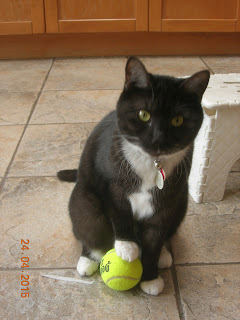Pam Withers's Blog, page 12
August 8, 2015
Writing a book series

Today I’m giving two presentations at the Willamette Writers Conference in Portland, Oregon. One is on researching your novel to make it more authentic; the other is on writing a book series. The fun part of putting the latter talk together, was delving into the history of series. Here, for fun, is some of what I found. These snippets of information will also serve as downloadable notes for those taking the course today.
75% of book series are for kids, and most are fictionSeries got their start in the early 1900s because dime novels made them affordable An article to read: “Writing series: Three authors tell all”: http://www.pamwithers.com/pw/?p=209
Historical perspective: How many titles did various series go to back when? (Wikipedia)
Wizard of Oz, starting in 1900, went to 14 titles
Tale of Peter Rabbit, 1902, 6
The Bobbsey Twins, 1904, 72
Tarzan, 1914, 26
Nancy Drew, 1930, 175
Little House on the Prairie, 1932, 12
Perry Mason, 1933, 82
Curious George, 1941, 58
James Bond, 1953, 14
Master and Commander, 1969, 21
Sweet Valley High, 1983, 400
Dummies, 1991, 1,800
Captain Underpants, 1997, 11
Harry Potter, 1997, 7
Popular Culture and Philosophy Series, 2000, 89
Sisterhood of the Traveling Pants, 2001, 5
Currently, the most popular series (first title represents series; info from Wikipedia):
1. Harry Potter, J.K. Rowling
2. Hunger Games, Suzanne Collins
3. City of Bones by Cassandra Clare
4. Divergent, Veronica Roth
5. Lightning Thief, Rick Riordan
6. Twilight, Stephenie Meyer
7. Vampire Academy, R. Mead
8. Clockwork Angel, Cassandra Clare
9. Game of Thrones, George R.R. Martin
10. Fellowship of the Ring, J.R.R.Tolkien
11. Lost Hero, Rick Riordan
12. Eragon, C.Paolini
13. Uglies, Scott Westerfeld
14. Maze Runner, James Dashner
15. Hush, Hush, Becca Fitzpatrick
16. Chronicles of Narnia, C.S.Lewis
17. Bad Beginning, Lemony Snicket
18. Girl with the Dragon Tattoo, Stieg Larsson
19. Hitchhiker's Guide to the Galaxy, D. Adams
20. Dead Until Dark, Charlaine Harris
Books I recommend for outlining a novel:
• The Writer’s Journey by Christopher Vogler and Michele Montez• The Weekend Novelist by Robert J Ray and Brett Norris• Writing the Breakout Novel by Donald Maas
Statistics
• 10-20% kids books are series• 20,000 series/sequels (English)• 104,000 titles (English)• 14,500 authors (7 titles/author)• foreign series: more titles
Adult series' most popular genres (in alphabetical order)
· cookbooks· fantasy· history/current affairs· mystery· romance· sci-fi · westerns
Children’s series' most popular genres (in alphabetical order):
FICTION
· adventure· fantasy· mystery· sci-fiNONFICTION
· biography· history· nature· science· technology· sports
Resources I recommend:
· Children’s Writers Market · Literary Marketplace· Children’s Writers’ Word Book· Writing Your First Fiction Series· Publisher’s Weekly/Kirkus· Goodreads.com· Urbanslang.com
Examples of publishers who specialize in series (for more, Google “submission guidelines” and “book series” or check out goodreads.com, http://www.goodreads.com/list/show/1381.Best_Series):
· Bedford/St. Martin’s· Holtzbrinck Publishers· Scholastic· Chronicle Books· Hyperion Press· Simon & Schuster· Buddhapuss Ink: “We specialize in series fiction for the serie-ous reader.”
Top-earning book genres (http://www.therichest.com/rich-list/which-5-book-genres-make-the-most-money/?view=all):
· romance/erotica ($1.44 billion)· crime/mystery ($728 million)· religious/inspirational ($720 M)· science fiction/fantasy ($590 M)· horror ($80 M)
Inside Stories of writing my books:I've now completed 17 "inside stories" that reveal how my books were born -- how or why I grew them from vague ideas into completed books. Helpful, I hope, for both readers and writers.
Here's how to locate them.
1. Go to my home page (www.PamWithers.com)
2. Click on "Books" at the top right.
3. Note the list of my titles on the middle right, and click on the one that interests you.
4. Click on "Read the story behind the book" just below the book summary.
Which inside stories are most interesting? I'd say First Descent, Andreo's Race and (if you like horror stories, because every author has at least one) Paintball Island. Happy reading!
Published on August 08, 2015 06:36
August 4, 2015
Researching a novel: My ship has come in
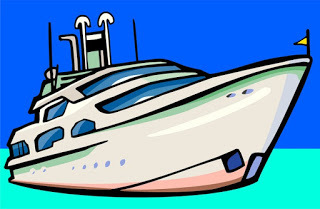
I’m excited to tell you about my new 45-foot yacht. Well, okay, it’s not mine. But it cruised into my life last week and decided to be a main character in the novel I’m writing at the moment.
I had already outlined this novel, of course, and knew it featured a power boat able to travel from Central America to Canada. I knew who owned it, who was on it, what was going on onboard and where it was heading. I knew that when my teenage protagonist decides to stow away on it for an adventure, he has no idea what he’s getting into.
What I didn’t know was exactly what my boat looked like. I had a friend trying to help me. I’d narrowed it down. I was cruising Google for photos of the boat. I was spending time viewing YouTube videos that feature virtual tours of boats for sale. I was talking to boating organizations; I even posted an item on a boaters’ site asking for a tour of the boat I had in mind. No takers.
I got to the point where my writing was on hold because I needed to see, smell, touch and feel this boat. Then she cruised into my bay and anchored for a couple of days. That’s her, I said!
I garnered all the courage I had and grabbed my kayak paddle. I paddled out with a plate of fresh-baked cookies, an autographed copy of one of my books, and a notebook, pen and camera. I asked if I could have a tour.
Whew! They welcomed me aboard, they answered my questions, they let me poke around and take pictures. They offered to send me specs and answer future questions by email.
Now I’m writing again, and they’ll eventually get an autographed copy of the book. Wow, the things a writer has to do! And thank goodness that boaters are so friendly.
Published on August 04, 2015 20:29
July 29, 2015
A five-star review!
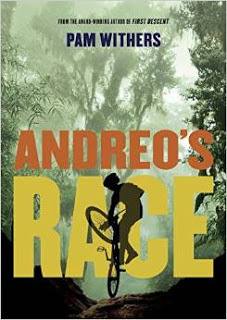 How nice to wake up and find a five-star review on my novel Andreo's Race!
How nice to wake up and find a five-star review on my novel Andreo's Race!http://back-to-books.blogspot.ca/search?q=andreo
Published on July 29, 2015 14:51
July 22, 2015
Youth and Math
[image error]
Youth and math: an interview with Linda M. Gojak, president of the National Council of Teachers of Mathematics. A fuller version of this interview (conducted by Pam) is at www.keenreaders.org http://www.keenreaders.org/linda-m-gojak-on-youth-and-math
Q: How would you sum up math knowledge among kids in North America today?A: International studies show that we’re not competitive with the top countries in the world, but you have to be really careful when you look at international comparisons, because we strive to educate all our students, while other countries that competitively do well are much more selective. For example, in China, at the eighth-grade level kids are given a very high-stakes test and only a select number get to go on to high school; others go to vocational schools or don’t go on to school at all.
Q: Is online learning particularly suited to math and science learning?A: To me, both math and science education offer opportunities to communicate and discuss and reason with others. There’s a lot of good material online that can help enhance their mathematics achievement, but it’s really important for kids to have an opportunity to share their thinking in real time with one another, and online learning does not always give them that opportunity.
Q: What can parents do to help their children engage with math?A: First, let kids know that mathematics is as important as reading and writing. It really is a critical factor in a child’s future options. Second, talk to the teacher. If your child is struggling, work with the teacher to provide opportunities so your child can do better in math. Sometimes parents think that they’re the teacher when their kid gets home. But math education looks different today than when parents were in school, so it’s more important to communicate with the teacher than to become the at-home teacher. Third, our children are very overbooked these days. They come home from school while both parents are working, or they come home and have to go to soccer or baseball or music practice. It’s real important for parents to realize that they need to set up a place for kids to do homework—a quiet place, and a time when the television and maybe computer are turned off. That homework is an important part of reinforcing what the kids learned in school that day.
Q: Is math competency more important today than it was in previous generations?A: Absolutely. Career options aside, in today’s economy, society, and political environment, we need to know when we’re reading or hearing legitimate information. We need to be able to look at the numbers and say, “This just doesn’t make sense.” There is a wonderful book called How to Lie with Statistics. If there are a lot of people lying with statistics, we’re going to be a very misinformed population unless we develop that ability to reason and see through the lies.
Excerpted from Jump-Starting Boys: Help Your Reluctant Learner Find Success in School and Life, by Pam Withers and Cynthia Gill (Viva Editions). All references (footnotes) contained in the book.
http://www.amazon.com/Jump-Starting-Boys-Reluctant-Learner-Success-ebook/dp/B00BAHA0Y8/ref=sr_1_1?s=books&ie=UTF8&qid=1421455869&sr=1-1&keywords=jump+starting+boys
Published on July 22, 2015 14:47
July 16, 2015
Need inspiration to write your novel?
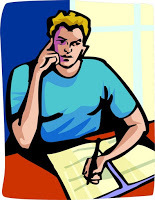
A close friend who needed writing inspiration took this course and is now feeling inspired and organized to write her first novel. She absolutely swears by this class so I thought I would pass it on.
https://www.futurelearn.com/courses/start-writing-fiction
Published on July 16, 2015 13:24
July 7, 2015
Coming soon: Bungee-jump novel!
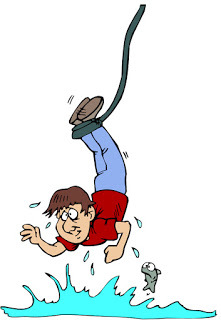 This is your early-bird notice. My next book is a middle-grade (ages 8-12) "hi-lo" (reluctant reader) novel for Orca Currents (like my books Camp Wild and Daredevil Club, see below) and it's now scheduled to come out the fall of 2016. And yes, it's on bungee jumping! You'll know more close to publication date. Sorry but no, you cannot pre-order it yet. You can, of course, view other Orca Currents books: http://www.orcabook.com/client/client_pages/Orca_Currents_Info.cfm
This is your early-bird notice. My next book is a middle-grade (ages 8-12) "hi-lo" (reluctant reader) novel for Orca Currents (like my books Camp Wild and Daredevil Club, see below) and it's now scheduled to come out the fall of 2016. And yes, it's on bungee jumping! You'll know more close to publication date. Sorry but no, you cannot pre-order it yet. You can, of course, view other Orca Currents books: http://www.orcabook.com/client/client_pages/Orca_Currents_Info.cfmCamp Wild: http://www.amazon.com/Camp-Wild-Orca-Currents-Withers/dp/1551433613/ref=sr_1_1?s=books&ie=UTF8&qid=1435580618&sr=1-1&keywords=camp+wild
Daredevil Club: http://www.amazon.com/Daredevil-Club-Orca-Currents-Withers/dp/1551436140/ref=sr_1_1?s=books&ie=UTF8&qid=1435580654&sr=1-1&keywords=daredevil+club
Published on July 07, 2015 21:09
July 3, 2015
Interview: Kids and Science
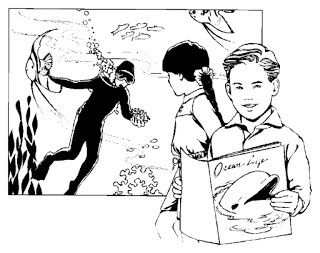
Dr. Gerald Wheeler is the interim executive director of the National Science Teachers Association (www.nsta.org), the world’s largest professional organization representing science educators of all grade levels. A fuller version of this interview (conducted by Pam) is at http://www.keenreaders.org/dr-gerald-wheeler-on-youth-and-science
Q: How would you sum up the state of science knowledge among youth in North America today?
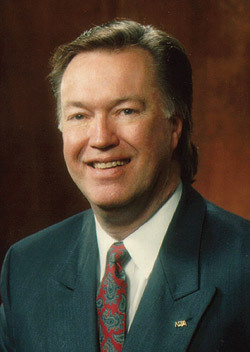 A: We’re definitely not in line with satisfying what we need for a workforce in the next ten to fifteen years.
A: We’re definitely not in line with satisfying what we need for a workforce in the next ten to fifteen years.Q: Your thoughts on how to improve that?A: Parents don’t need to have a strong background in science to help their children learn and appreciate science. Doing science with your child can be as simple as helping him or her measure the ingredients for a batch of chocolate chip cookies. Don’t let science become a weak part of your child’s education. Get involved.
Q: Do problems with reading and writing affect science learning?A: It turns out that science is actually a gift in this case. Science and technology can get struggling readers engaged, and actually improve their math and literacy scores. It’s a door opening to get them engaged in their schooling. If they really like the hands-on, real-world problems, as soon as they do these, they get immersed in mathematics and reading.
Q: Is online learning suited or unsuited to science education?A: It works pretty well, but is a challenge because a lot of science is hands-on.
Q: What can parents do to help kindle or grow their children’s interest in science?A: I think it starts long before high school. It’s about engaging them by answering questions and exploring things. Dinnertime is a great opportunity for your family to have discussions about science-based news stories (space shuttle missions, severe weather storms, etc.). Movies and TV shows that feature science-related themes are also good topics for discussions. Too many parents say, “Well, that’s the job of the schools, and don’t give our kids homework because it interrupts our quality time.” Also, too many families come home and eat at different times or head off to their separate computers or televisions. They need to get engaged in what’s happening in the schools, and find ways to be supportive of the teachers and the school program. For example, parents can participate in their child’s school science program by locating scientists and others to be guest speakers, or can accompany their child on a field trip to a science-related place.It’s a struggle with the disenchanted child; he is really destroying his future if he doesn’t get engaged. We have to make sure we get them engaged.
Excerpted from Jump-Starting Boys: Help Your Reluctant Learner Find Success in School and Life, by Pam Withers and Cynthia Gill (Viva Editions). All references (footnotes) contained in the book.
http://www.amazon.com/Jump-Starting-Boys-Reluctant-Learner-Success-ebook/dp/B00BAHA0Y8/ref=sr_1_1?s=books&ie=UTF8&qid=1421455869&sr=1-1&keywords=jump+starting+boys
Published on July 03, 2015 11:34
June 24, 2015
Positive parenting blog
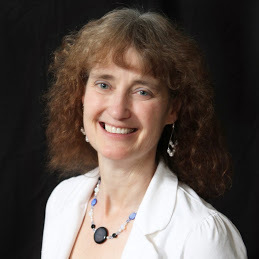 I'm currently visiting my older, better-looking, smarter, bossier sister Cynthia, pictured here. She, of course, is my co-author on Jump-Starting Boys. Like me, she does presentations on getting boys to read. She also writes a blog on jump-starting boys and on positive parenting. So with sisterly pride, I'd like to refer people to her blog: www.cynthiagill1972.blogspot.com
I'm currently visiting my older, better-looking, smarter, bossier sister Cynthia, pictured here. She, of course, is my co-author on Jump-Starting Boys. Like me, she does presentations on getting boys to read. She also writes a blog on jump-starting boys and on positive parenting. So with sisterly pride, I'd like to refer people to her blog: www.cynthiagill1972.blogspot.com
Published on June 24, 2015 09:23
June 15, 2015
FIFA World Cup at our house
Published on June 15, 2015 15:24
June 11, 2015
Writers conference announcement!
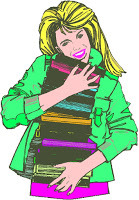
Calling writers of all genres and abilities!
The website is now up. So look it over and join me at the Willamette Writers Conference in Portland, Oregon. This is your personal invitation!
http://2015willamettewritersconference.sched.org/speaker/pam_withers.1tpdc005#.VXneoUbdiec
Who: I'm teaching two of the courses, but check out the entire stellar cast of faculty.
What: 46th annual Willamette Writers Conference
When: August 7-9, 2015
Where: Portland, Oregon
Why: Because it's one of the best organized writers' conference out there, and because I'd love to meet you!
Published on June 11, 2015 12:29

